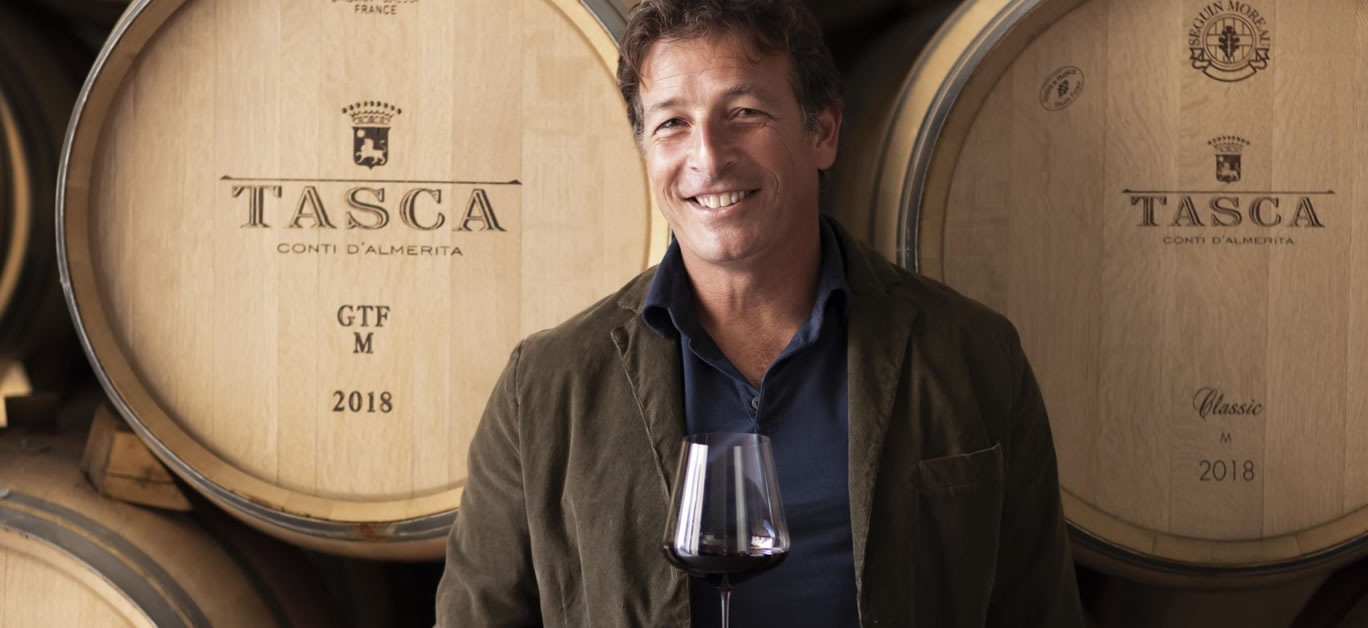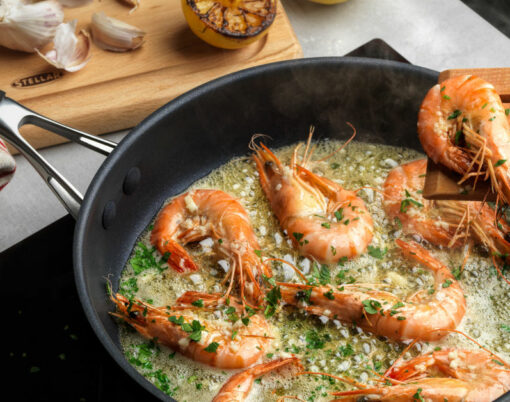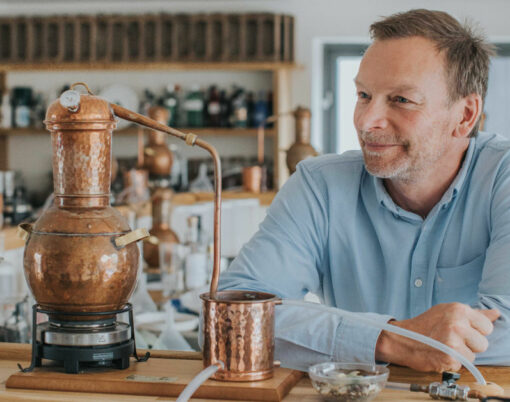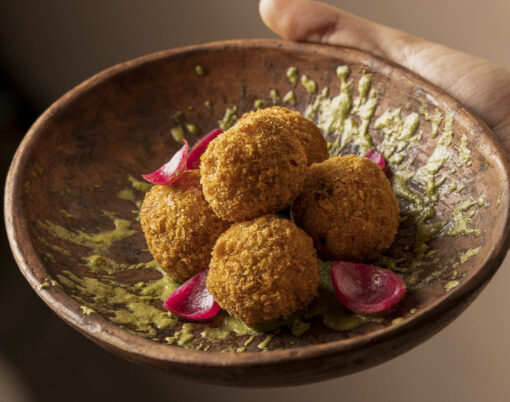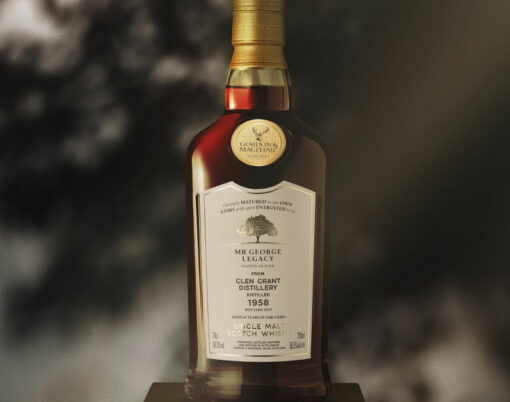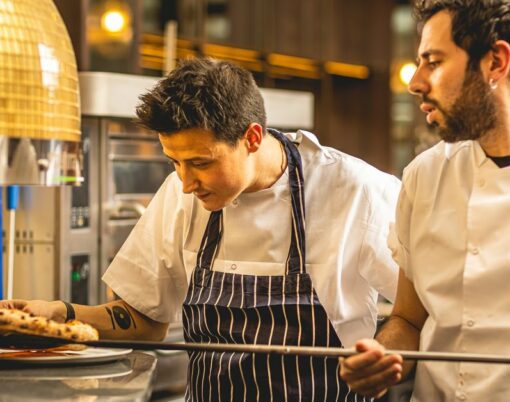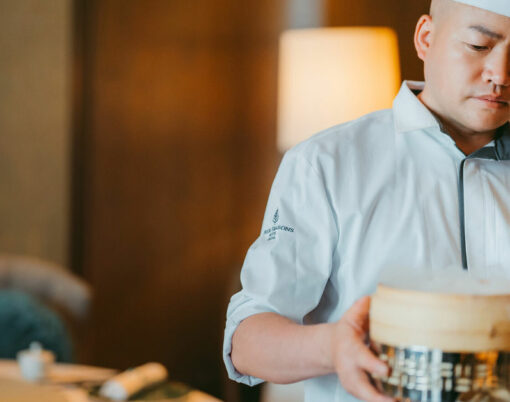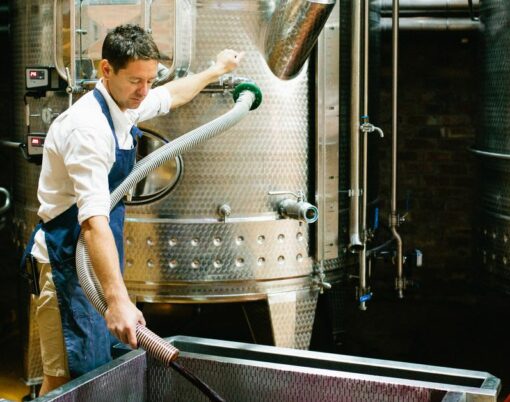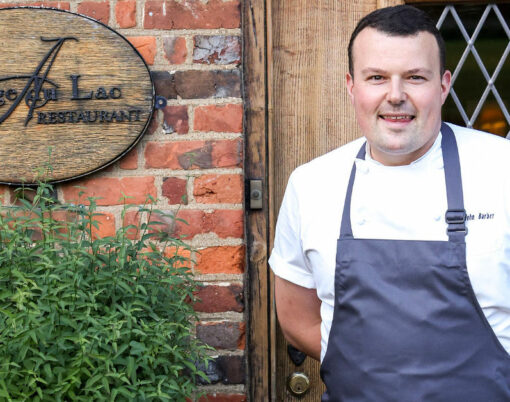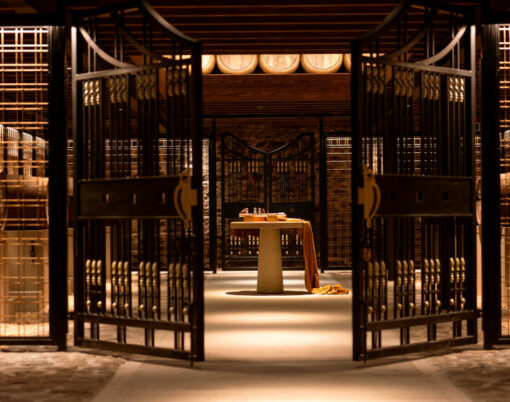Words by Gargi Guha
Drenched in sunshine and dramatically hugging the slopes of crater-pocked mountains, Sicily’s vineyards are a remarkable sight. Down below, is the glittering blue expanse of the Ionian Sea and now wine connoisseurs are sitting up and noticing this beautiful isle as a hot ‘new’ wine destination.
The backstory
Grapes, though, have been grown on this island for over thousands of years, first brought in by the ancient Greeks who pioneered the alberello (small tree) method of growing wines closer to the ground, as a way of withstanding the elements, as well as sharing their knowledge of pruning. Post this, viticulture in Sicily underwent some notable vicissitudes, including a period where the wines were ingloriously known for their lack of personality and mainly used to bulk up more sophisticated blends elsewhere.
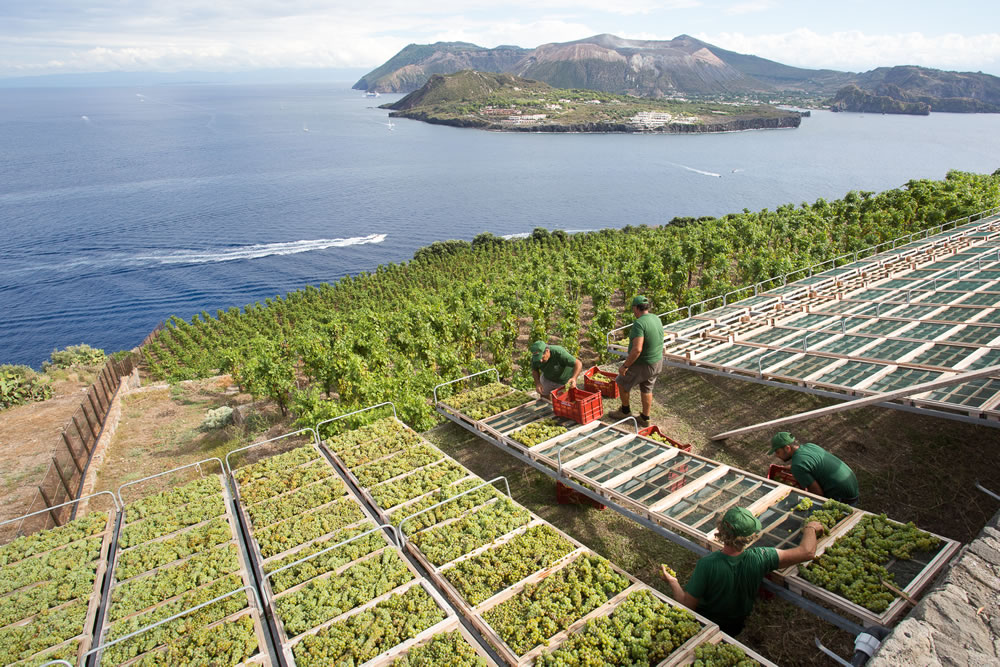
Winds of change
Sicilian wine stakeholders have recently shaken things up to change the direction of the island’s wine landscape and there has been a focussed approach towards the enhancing of quality over quantity. In the last ten years there has been a paradigm shift in the viticulture management, increasingly aimed at maximizing quality, along with a reconversion of some vineyards to other uses. “The 2020 harvest was qualitatively very important, as can be seen from the elegance, freshness and structure of the wines produced by our members in all areas of the island,” notes Laurent Bernard de la Gatinais, president of Assovini Sicilia.
Along with its associates, Assovini Sicilia, aims at keeping the narrative going in the promotion of Sicilian wines. “By talking about Sicilian wines, we also talk about the history of Sicily, the wine culture related to every single aspect – from archaeology to tourism,” says Laurent.
The Sicilian wine-growing sector is increasingly aware that only by respecting nature can winemakers produce quality wines. Sustainability is key to the future of Sicilian wine. Promoting sustainable development in the Sicilian wine sector, directing wineries towards the constant measurement and reduction of the impact that agricultural practices have on the territory – those are the directional changes of the landscape.
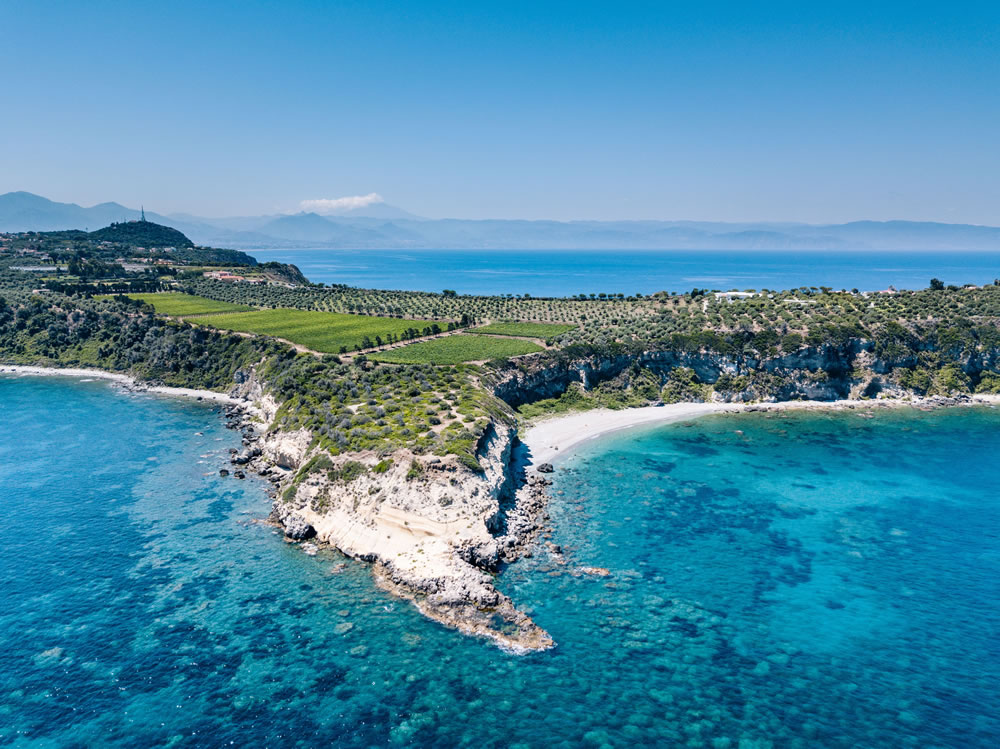
SOStain Sicilia Foundation
But not just this. “Stimulate research to develop a culture of sustainability at all levels, orienting production and consumption models and promoting the spread of good practices among companies to respect the ecosystem. These are some of the goals of the foundation,” says Alberto Tasca, president of SOStain Sicilia.
The SOStain Sicilia Foundation was created with a view to preserving Sicily’s immense natural heritage, promoting a protocol among wineries that use rigorous scientific indicators to determine exactly what effect each action taken in the vineyard, in the cellar and throughout the organization in general has, and to reduce the impact.
In his own realm of viticulture, Alberto has ensured that Tasca d’Almerita’s commitment to sustainability spans all its five estates – the historic Regaleali, Capofaro, Tascante, Whitaker and Sallier de La Tour. This allegiance to sustainability has won it Wine Enthusiast’s coveted European Winery of the Year award and was recognised by the Relais and Châteaux association, which awarded the 2020 Sustainability Trophy to Tasca d’Almerita’s Capofaro Locanda and Malvasia estate.
Here, sustainability is not just a badge of honour, but a living and breathing spirit. From native varieties like Nero d’Avola, Inzolia, Grillo, Catarratto, Malvasia, Nerello Mascalese and Perricone to international grapes like Chardonnay and Cabernet Sauvignon, Tasca’s grapes are tended to with care and consciousness, giving way to some outstanding wines that have been recognised for their fine structure. Apart from these grapes, grains and wheat are grown and made into breads and pasta, which guests at the Tasca properties enjoy as bountiful produce of the fertile land. Olives have been revered here over the years, for their quality and richness.
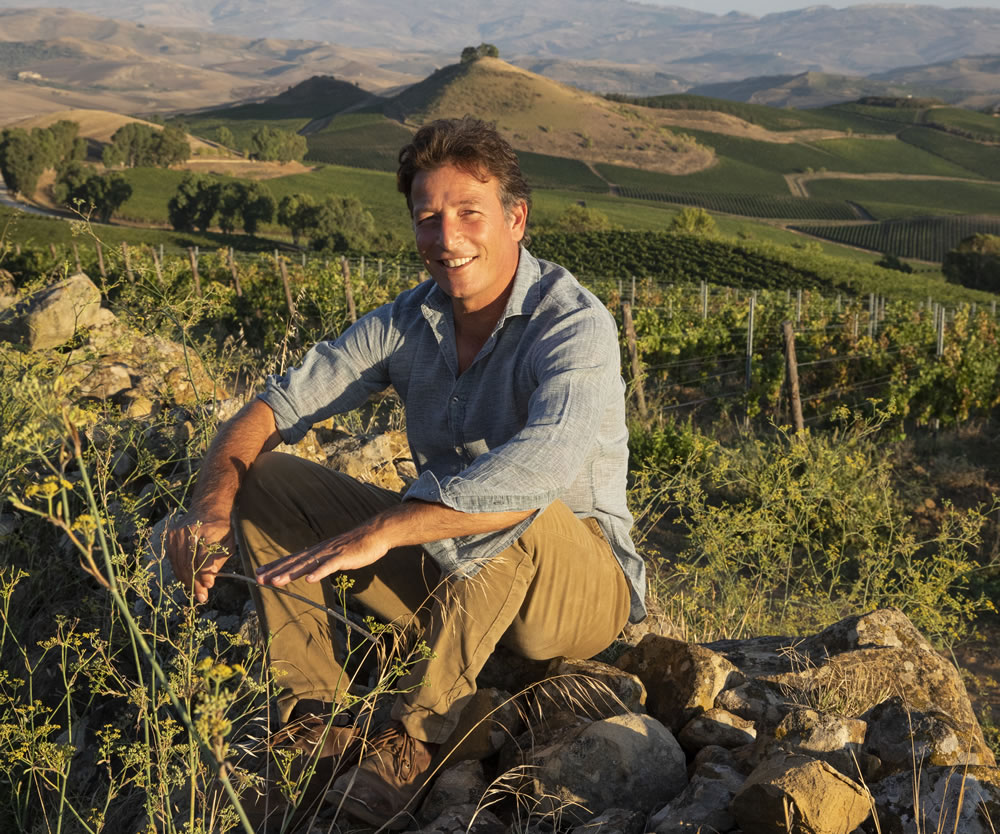
Sicily wines on the world stage
Boasting a wide portfolio of native grapes, which are nourished by the Mediterranean climate, warm, golden sunshine, many thriving on the slopes of Etna’s volcanic slopes, Sicily has a rich heritage to uphold.
Wines in Sicily have been flourishing since antiquity, but a variety of forces have now come together to get these wines on the world map. Thanks to the untiring work of certain notable past and current generations of winemakers, the quality of Sicilian wines has seen a marked improvement and this has helped in its promotion all over the world.
Let’s continue to tell and retell the amazing story of Sicily’s winescape as we raise a toast to its glorious tradition and viticulture.
Gargi Guha is a hotelier, communications professional and writer. She takes a keen interest in the food, wine and culture of Italy, especially its 500 plus indigenous grape varieties.












